Premixed Combustion, Eddy Dissipation / Finite Rate Model, ANSYS Fluent CFD Simulation Training
$140.00 $70.00 Student Discount
- The problem numerically simulates the Premixed Combustion in a combustion chamber using ANSYS Fluent software.
- We design the 2-D model by the Design Modeler software.
- We mesh the model with ANSYS Meshing software. The mesh type is Structured, and the element number equals 86002.
- We use the Species Transport model to define a Combustion reaction.
- Eddy Dissipation / Finite Rate Model is applied.
To Order Your Project or benefit from a CFD consultation, contact our experts via email (info@mr-cfd.com), online support tab, or WhatsApp at +44 7443 197273.
There are some Free Products to check our service quality.
If you want the training video in another language instead of English, ask it via info@mr-cfd.com after you buy the product.
Description
Description
The present problem simulates the premixed combustion in a combustion chamber by ANSYS Fluent software. In the present case, it is assumed that the fuel and air enter the chamber from one boundary and hence are considered premixed.
The geometry of the present model is two-dimensional and has been designed using Design Modeler software. We do the meshing of the present model by ANSYS Meshing software. The mesh type is Structured, and the element number is 86,002.
This CFD project is the 4th episode of the Combustion Training Course.
Premixed Combustion Methodology
The species transport model is used to model the combustion process. The one reaction methane-air mixture is selected, and the volumetric option is used to model combustion in the chamber.
Also, the Eddy Dissipation / Finite Rate model is enabled to account for the turbulence chemistry interactions. This submodel neglects the detailed kinetic mechanisms and only considers the effect of mixing on combustion.
Also, the Energy equation is On to calculate the changes in temperature due to the combustion process, and the Viscous is set as the Standard k-epsilon model.
Premixed Combustion Conclusion
After the simulation process was finished, contours such as temperature, velocity, different species’ mass fractions, and streamlines are obtained. As shown in the temperature contour, the temperature has clearly increased in the chamber indicating that the combustion has taken place.
Also, the formed secondary flows in the chamber are shown in the streamlines. These secondary flows have the role of increasing the mixing process between fuel and air and hence enhancing the combustion process.
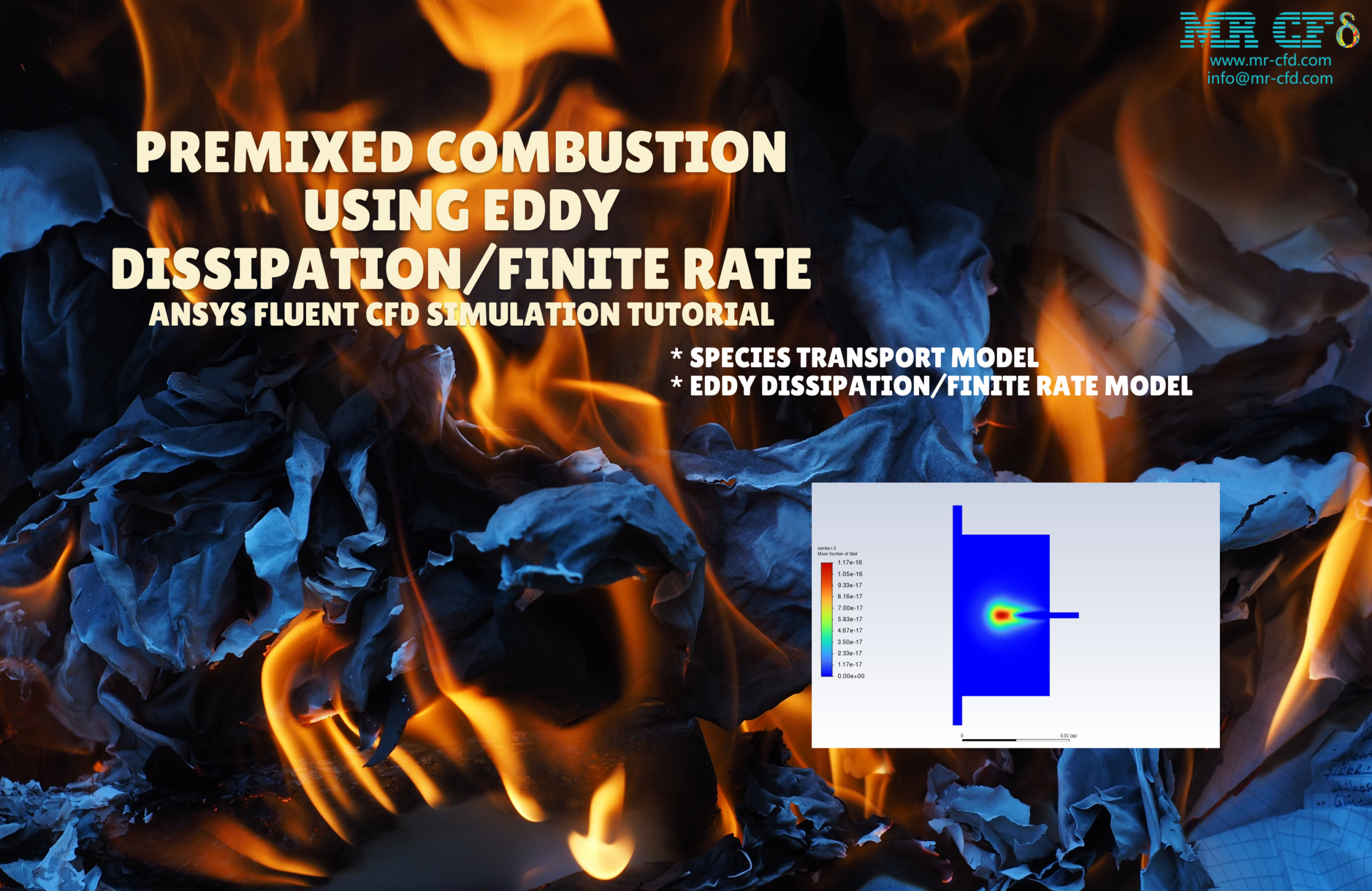
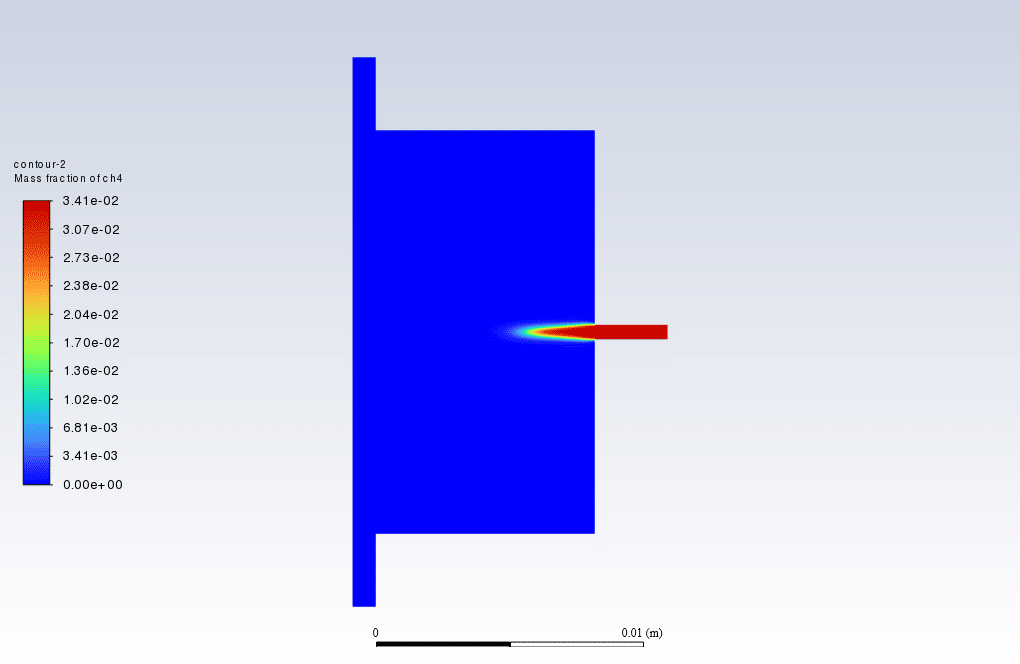
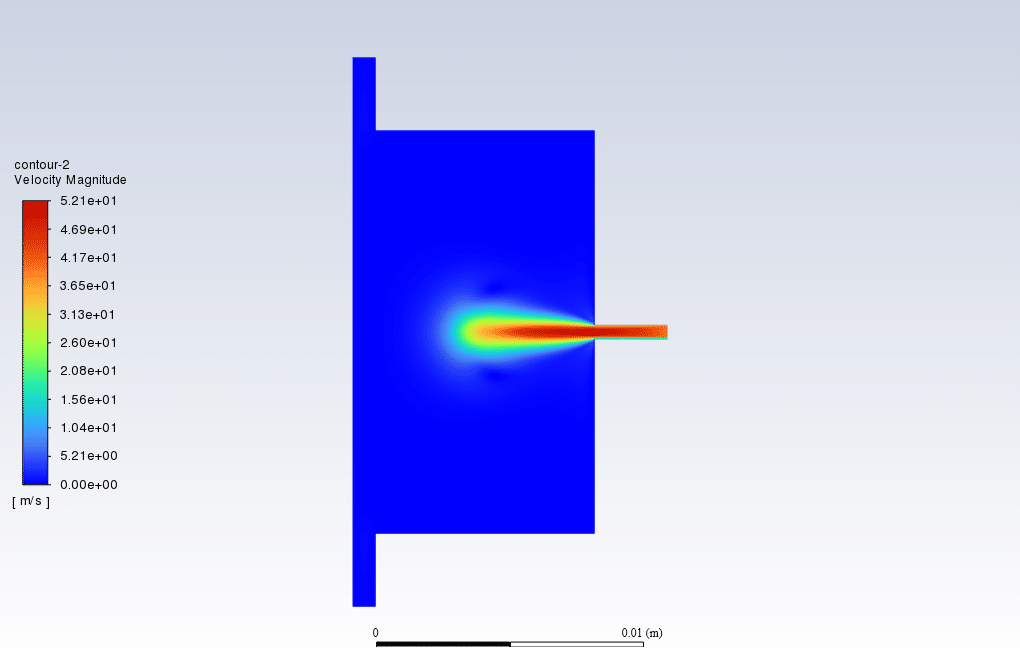
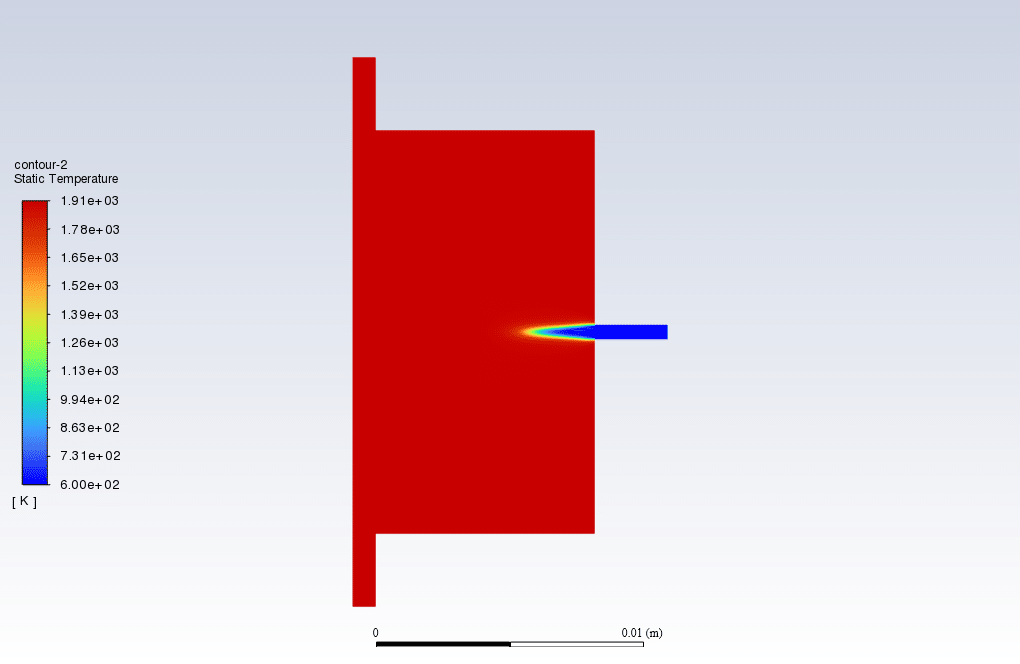

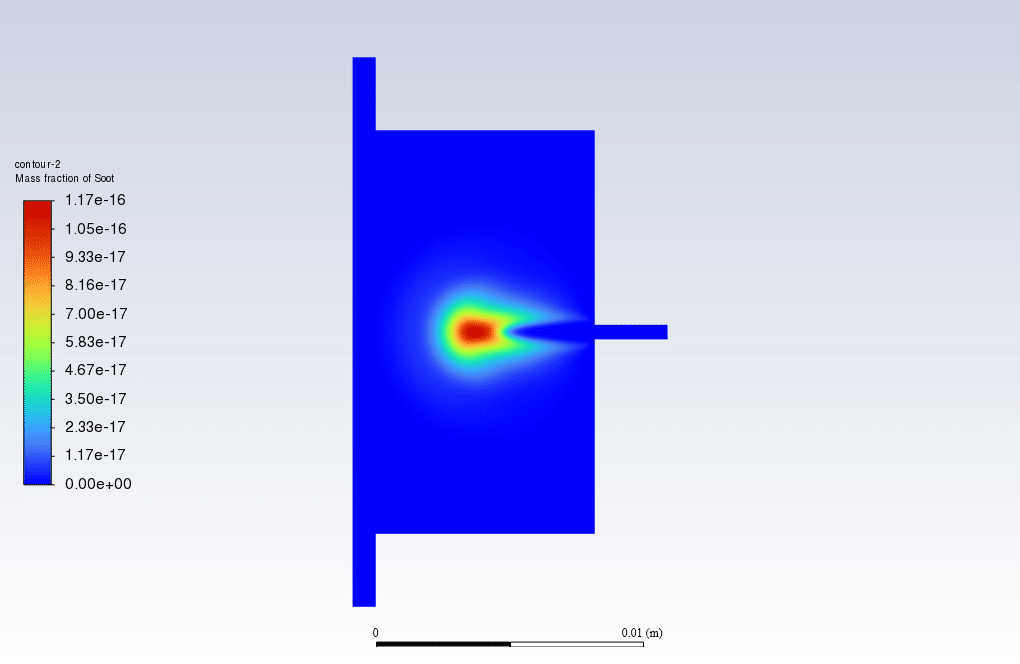

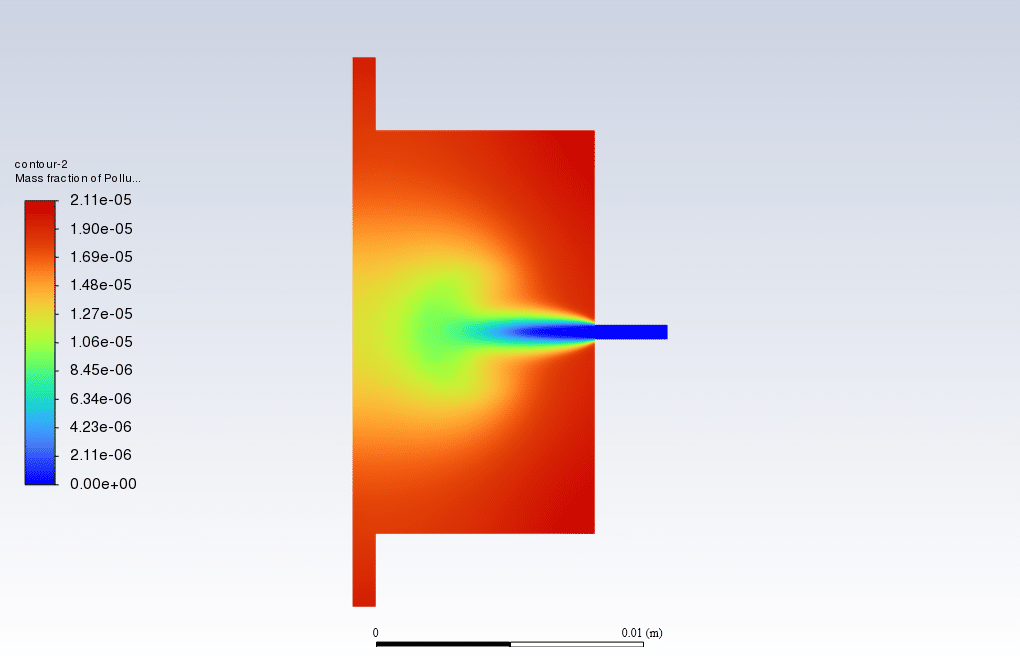
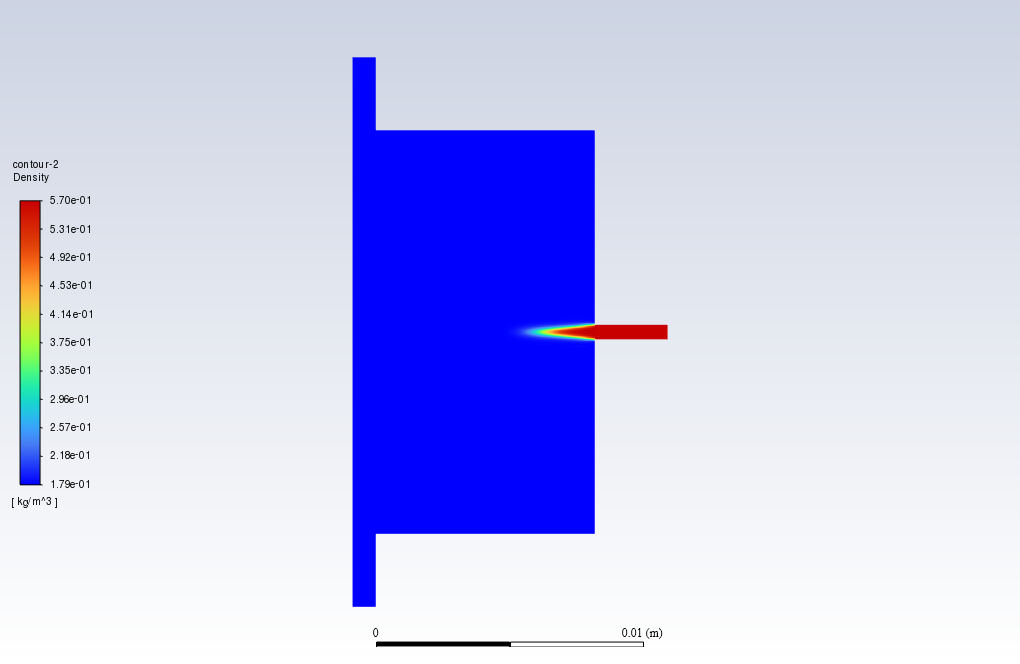
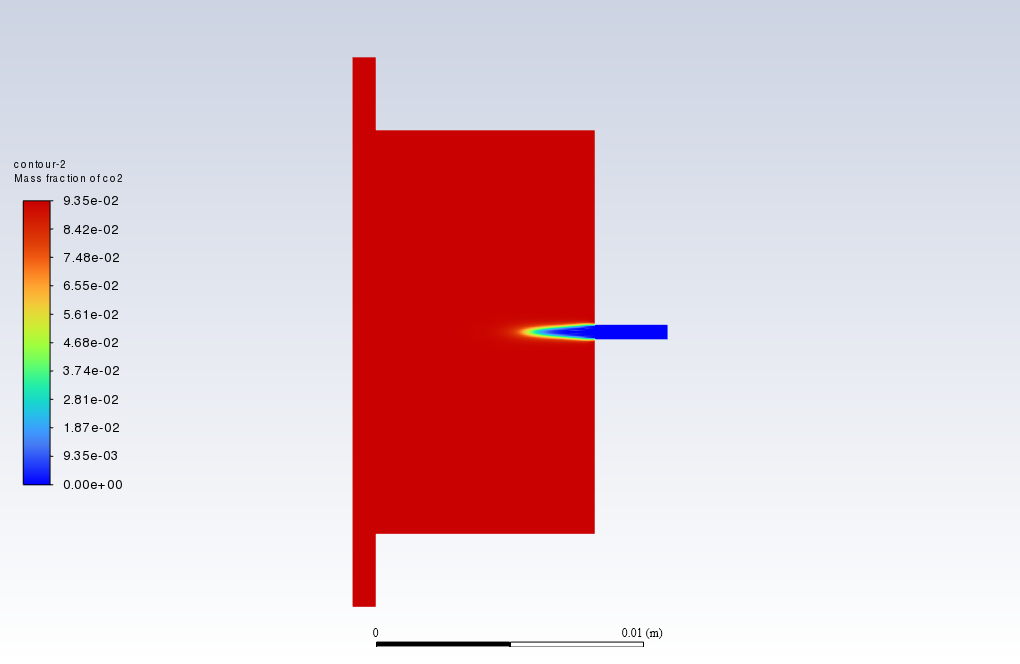
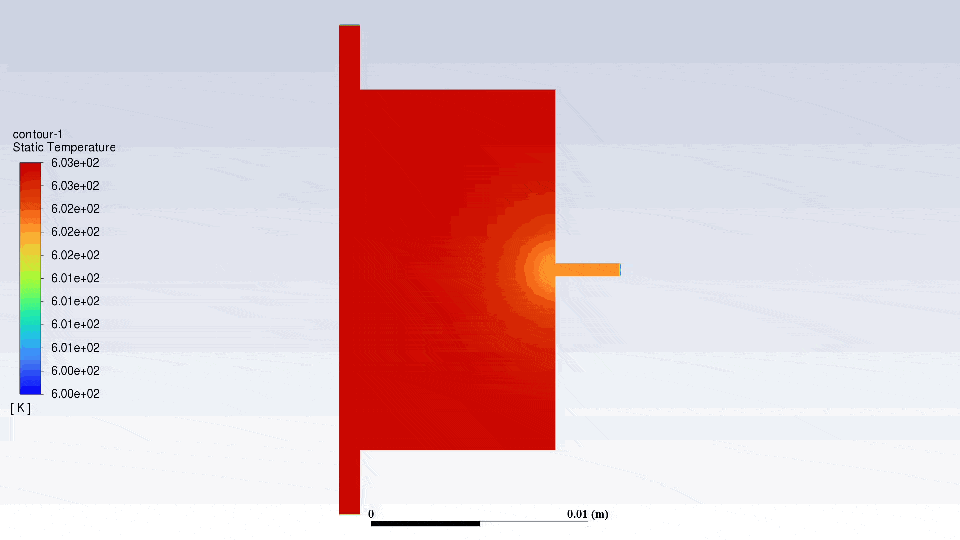
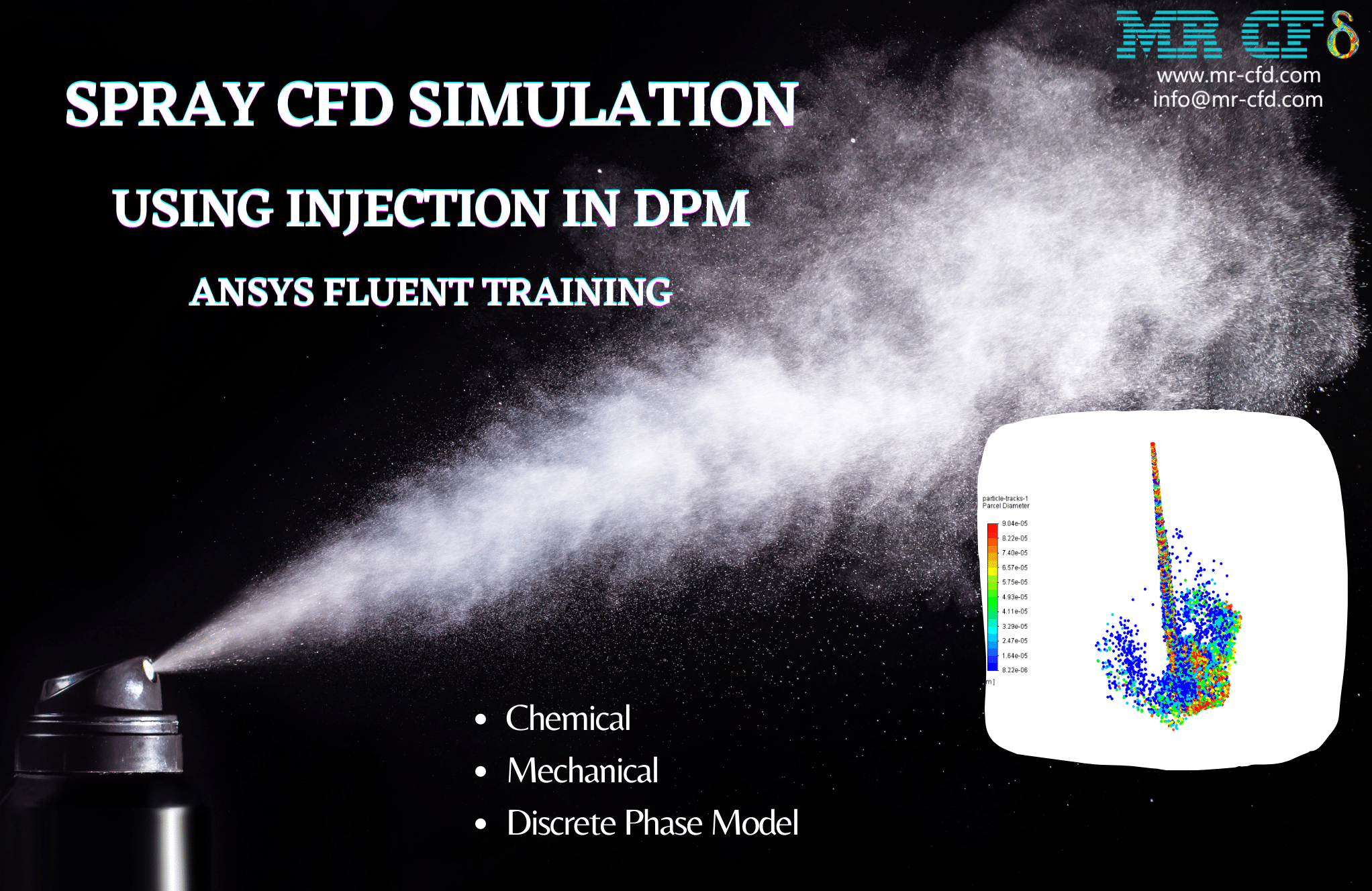



Brice Swaniawski –
The training was incredibly insightful! The visual results really helped understand the process and effects of premixed combustion.
MR CFD Support –
Thank you so much for your positive feedback! We’re thrilled to hear that our training was effectively able to illustrate the complex process of premixed combustion for you. Understanding those visual outcomes is key to mastering such simulations, and we’re glad you found it insightful!
Juvenal Eichmann Sr. –
Just finished the training on Premixed Combustion using ANSYS Fluent. The step-by-step simulation process was truly insightful. Gained a deep understanding of the combustion process and the way turbulence impacts it.
MR CFD Support –
Thank you for your positive feedback on the Premixed Combustion simulations training! We’re thrilled that you found it insightful and that it deepened your understanding of the combustion process and the significance of turbulence. We appreciate your support and are here to assist with any further learning needs you may have!
Matteo Rau MD –
What analysis type did the admin use for observing the simulation results, and how can one interpret it effectively?
MR CFD Support –
The admin used a post-processing analysis tool within ANSYS Fluent to observe the simulation results. They checked the temperature, velocity, species mass fractions, and streamlines to effectively interpret the combustion process within the chamber. By examining the temperature rise shown in the contours, one can identify where the combustion is happening. Secondary flows observed in the streamlines indicate how the fuel and air mix, which is crucial for understanding combustion efficiency.
Prof. Orland Cartwright DDS –
This course was fantastic for understanding premixed combustion CFD simulations! I was impressed with the level of detail in explaining the modeling setup especially how the Eddy Dissipation / Finite Rate model accounts for turbulence in the reaction. The temperature contours after the simulation truly proved the combustion efficiency. Thanks for an awesome learning tool!
MR CFD Support –
Thank you for your positive feedback! It’s wonderful to hear that our training on premixed combustion and the use of the Eddy Dissipation / Finite Rate model in ANSYS Fluent has been informative and effective for you. Our goal is to provide comprehensive and clear tutorials, so we’re thrilled that the detailed explanations and simulation results were up to your expectations. If you have any more interest in CFD courses, do check out our other modules for more in-depth knowledge!
Catalina Parker –
The training was very informative, particularly on the application of the Eddy Dissipation/Finite Rate Model. Julien was happy with the structured mesh approach and the detailed results on temperature and mass fractions.
MR CFD Support –
Thank you for your positive review! We’re delighted to hear that our training on Premixed Combustion with appropriate modeling techniques provided you with valuable insights and met your expectations. If you have any further questions or require more information, please feel free to reach out.
Adrianna Connelly –
I’m impressed with the detailed methodology used for simulating premixed combustion. This tutorial must have been incredibly valuable for understanding combustion modeling!
MR CFD Support –
Thank you for the positive feedback! We’re glad you found our methodology detail-oriented and helpful. Simulating premixed combustion can indeed be complex, and we strive to provide thorough training to enhance understanding. If you have any further questions or need assistance in your modeling endeavors, please do not hesitate to reach out.
Tessie Rogahn –
Fantastic training course! The level of detail in explaining the setting up of the models and the clarity of the simulation results really helped me understand premixed combustion better. The structured meshing technique made my results so much clearer as well.
MR CFD Support –
Thank you for your positive feedback! It’s rewarding to hear that our Combustion Training Course greatly aided in your understanding of premixed combustion and the use of structured mesh improved your simulation clarifications. We strive to provide clear and detailed explanations to enhance the learning experience. If you have any more questions or need further assistance, feel free to reach out!
Josh Stiedemann –
Wonderfully detailed tutorial! The explanation regarding the Eddy Dissipation / Finite Rate models was particularly helpful. I feel better prepared to handle combustion simulations in my own projects now.
MR CFD Support –
Thank you for your kind words! We’re thrilled to hear that our tutorial on Premixed Combustion using ANSYS Fluent has been helpful for you. If you need any further assistance with your combustion simulations or have more questions, feel free to reach out to us. Good luck with your projects!
Miss Rosalee Mraz –
I just completed the Premixed Combustion CFD simulation training, and it was terrific! The explanations were clear, and the hands-on experience was invaluable. The use of Eddy Dissipation and Finite Rate Model made understanding the turbulence-chemistry interactions very engaging. Incredible learning experience!
MR CFD Support –
We’re thrilled to hear that you enjoyed the Premixed Combustion CFD simulation training and found it enlightening. It is great to know the training helped in deepening your understanding of turbulence-chemistry interactions. Thank you for your kind review, and we look forward to empowering you with more knowledge in the future!
Prof. Malika Fritsch DDS –
I just completed this Premixed Combustion simulation course and I loved the clarity of the concepts explained regarding turbulence and combustion interactions. The detailed methodology really helped me understand the applications of the Eddy Dissipation for modeling combustion processes.
MR CFD Support –
Thank you so much for your kind words and for taking the time to leave us this positive review. We’re thrilled to hear that our course on Premixed Combustion provided the clarity you needed and helped deepen your understanding of turbulence-chemistry interactions in combustion. Your feedback is invaluable, and we look forward to providing you with more enriching learning experiences. If there’s ever more we can do to assist you in your learning journey, please don’t hesitate to reach out!
Mrs. Genevieve McLaughlin MD –
Is this training suitable for beginners or is it more advanced level?
MR CFD Support –
This training is designed to be part of a Combustion Training Course and specifically addresses premixed combustion, which can be an advanced topic. It involves using the ANSYS Fluent software’s more sophisticated modeling features like the Eddy Dissipation / Finite Rate model. Therefore, it may be more applicable for someone with intermediate to advanced experience in CFD and combustion simulations.
Chesley Braun –
This product has been instrumental in understanding the complexities of premixed combustion. The clear visualization of increased temperatures and the formation of secondary flows really underscore combustion dynamics.
MR CFD Support –
Thank you for taking the time to provide your feedback. We are pleased to hear that our training has helped you to grasp the intricacies of premixed combustion and appreciate your acknowledgment of the detailed visualizations provided. If you need further assistance with the complexities of CFD simulations, our team is always here to help!
Mr. Brycen Grady DVM –
The description mentions the use of a single reaction methane-air reaction. Can you explain how this simplification affects the accuracy of the simulation results, particularly with regards to the chemical complexity of real combustion processes?
MR CFD Support –
The single reaction methane-air mixture simplification in the simulation focuses on capturing the essential characteristics of the combustion process while omitting complex chemical kinetic mechanisms. This approach generally results in faster computations at the expense of some accuracy, particularly in situations where detailed reaction mechanisms play a key role in the combustion dynamics. However, for many engineering applications, this level of simplification is deemed acceptable to gain insights into the overall process with reasonable accuracy and computational efficiency.
Prof. Addison Considine V –
The premixed combustion simulated results look impressive. Excited to see the temperature changes and streamline behaviors visually laid out, understanding the complexity of such reactive fluid flow environments!
MR CFD Support –
Thank you for your kind words! We’re delighted to hear that you found the simulation results impressive and that they provided clear visual insight into the combustion processes within the combustion chamber. If you’re ever curious about more details or have questions, feel free to reach out to us.
Mr. Ulices Swift –
I just finished the Premixed Combustion, Eddy Dissipation / Finite Rate Model training at MR CFD, and it really elevated my understanding of combustion processes. The course was well-structured and the tutorials made complex topics manageable.
MR CFD Support –
Thank you for taking the time to share your positive experience with our Premixed Combustion training course. We’re glad to hear that the course structure and tutorials effectively contributed to your understanding of combustion. Your feedback is greatly appreciated!
Joel Ruecker –
This training content seems very comprehensive, but I am curious about how the Finite Rate model affects the simulation compared to using the Eddy Dissipation model alone. Could you elaborate on that?
MR CFD Support –
When using the Finite Rate model in conjunction with the Eddy Dissipation model in ANSYS Fluent, it allows for a more realistic simulation of the combustion process. The Eddy Dissipation model primarily focuses on the turbulence effects on the reaction rates, while the Finite Rate model takes into account the chemical kinetics of the reactions. This combination provides a balance between simulation accuracy and computational cost by capturing the effects of both turbulence and chemistry-controlled reaction rates on combustion.
Jess O’Keefe –
The tutorial is great! I’ve learned so much about premixed combustion simulation using ANSYS Fluent.
MR CFD Support –
Thank you for your positive feedback! We’re truly glad to hear that our Premixed Combustion tutorial has contributed to your understanding of combustion simulations. If you need further assistance or have more inquiries, feel free to reach out!
Rachael Pacocha –
This training product seems comprehensive. The emphasis on the mixing process and its necessity for enhancing combustion is appreciated; were the resultant emissions from the combustion analyzed in the simulation as well?
MR CFD Support –
In our premixed combustion simulation, we focus primarily on factors that affect the combustion process, like flow mixing and temperature distribution. However, emissions analysis can be a separate, complex area and may require advanced models for accurate prediction of species such as NOx or CO. For this specific training, emission analysis was not mentioned, but additional modules or supplements may provide insights into this aspect of combustion simulation.